Empower Your Digital Story
If you have a business, chances are you already have a social media account. And you know it can drive customers, build your brand, and boost sales.
But just having an account isn’t enough. Posting randomly? Ignoring engagement? That won’t get results. Social media marketing needs a strategy—one that helps you stand out and actually grow.
That’s exactly what we’re covering in this blog. A complete guide to social media marketing for business—what works, what doesn’t, and how to turn it into a real growth tool. Let’s get into it.
What is Social Media Marketing for Business?
Social media marketing for business isn’t just about posting updates—it’s about using platforms like Instagram, Facebook, TikTok, LinkedIn, and X (previously Twitter) strategically to grow your brand, connect with customers, and drive sales. It’s a mix of marketing, customer service, and community building, all rolled into one.
Unlike personal social media, where you share updates with friends, business social media focuses on attracting the right audience. This means creating valuable content, engaging with followers, and using tools like ads and analytics to measure success.
When done right, social media marketing helps businesses increase brand awareness, build trust, and even generate direct sales. Whether you're a small business or a large company, having a solid social media strategy can give you a competitive edge.
Benefits of Social Media Marketing for Business
1. Increases Brand Awareness
Social media puts your business in front of a wider audience. With billions of users on platforms like Instagram, Facebook, and LinkedIn, you can reach potential customers daily. Consistent posting, engaging content, and sharing updates keep your brand visible. The more people see your business, the more they recognize and trust it, boosting long-term growth.
2. Drives Traffic & Sales
Social media acts as a bridge between your audience and your website or store. A well-placed post, engaging story, or ad can lead users to explore your products or services. By optimizing content with strong calls to action, links, and promotions, you can turn casual scrollers into paying customers, boosting sales and conversions over time.
3. Builds Customer Trust
People buy from brands they trust, and social media helps build that trust. By consistently sharing valuable content, responding to comments, and engaging with followers, you create a brand that feels approachable and reliable. Transparency, authenticity, and customer interactions show that you care, turning one-time buyers into long-term supporters and even brand advocates.
4. Cost-Effective Marketing
Unlike traditional advertising, social media marketing offers a budget-friendly way to reach potential customers. Organic reach allows you to grow without spending a dime, while paid ads let you target specific demographics at a fraction of traditional ad costs. Even small businesses with limited budgets can compete with larger brands by focusing on engaging content and smart advertising strategies.
5. Provides Valuable Insights
Social media platforms offer analytics that help businesses understand audience behavior, engagement patterns, and content performance. You can see which posts drive the most traffic, what times your audience is most active, and what type of content resonates best. These insights allow you to tweak your strategy, improve engagement, and make data-driven marketing decisions for better results.
6. Boosts Customer Engagement
Social media creates direct, real-time connections with your audience. Whether through comments, DMs, or interactive features like polls and Q&A sessions, engagement strengthens relationships. The more you interact, the more invested customers feel in your brand. Higher engagement also signals platform algorithms to boost your content’s visibility, helping you reach even more potential customers effortlessly.
How to Get Started with Social Media Marketing for Your Business
1. Define Your Goals
Before you dive in, ask yourself: What do you want to achieve? Whether it’s increasing brand awareness, driving traffic, or generating sales, setting clear goals will guide your strategy and measure success.
2. Know Your Audience
Understand who you're speaking to. Identify their demographics, interests, and behaviors. Tailor your content to appeal to this group and make sure it resonates with them.
3. Choose the Right Platforms
Not every platform suits every business. Instagram may be perfect for a lifestyle brand, while LinkedIn works better for B2B. Pick platforms that match where your target audience spends their time.
4. Create a Content Plan
Plan your posts in advance to stay consistent. Mix up your content types, from educational posts to promotions, and ensure they align with your brand voice. A content calendar can help you stay organized.
5. Engage with Your Audience
Social media is a two-way street. Respond to comments, messages, and mentions. Show your audience that you care and are actively listening to their feedback.
6. Track Your Results
Use analytics tools to track your performance. See what content works, which posts drive traffic, and where you can improve. Adjust your strategy accordingly to maximize results.
Getting started with social media marketing is easier than it sounds when you have a clear plan in place. Keep things consistent and adaptable, and you’ll see growth over time!
9 Social Media Marketing Tips for Your Business
1. Post Consistently
Consistency is key to staying relevant. Posting regularly keeps your brand visible and engaged with your audience. It doesn’t have to be daily but aim for a consistent schedule that works for you.
Whether it’s 3 times a week or daily, being predictable helps followers expect and interact with your content, strengthening brand loyalty over time.
2. Use High-Quality Visuals
People are drawn to eye-catching visuals. High-quality images, videos, and graphics help your content stand out. Invest in good visuals that reflect your brand’s identity and message.
Whether it's product shots or behind-the-scenes looks, visuals make your content more shareable and memorable. Great visuals increase engagement and help your business appear professional and trustworthy.
3. Leverage User-Generated Content
Encourage your followers to share their experiences with your product or service. User-generated content acts as authentic testimonials that build trust with potential customers.
Reposting customer photos or reviews shows appreciation and strengthens the community around your brand. It also adds a personal touch and boosts social proof, making your business more relatable and credible.
Example of a brand using user-generated content on Instagram.
4. Experiment with Ads
Paid social media ads are powerful tools to reach a wider audience. Experiment with different ad formats like carousel ads, video ads, or sponsored stories to see what works best. Make sure your ads are visually appealing and have a clear call-to-action.
Tracking ad performance helps refine your strategy and ensures you’re getting the best return on investment.
5. Use Hashtags Wisely
Hashtags help your content get discovered by a wider audience. Research relevant and trending hashtags to expand your reach beyond your followers. Using specific, niche hashtags can attract users interested in your industry.
Avoid overloading your posts with hashtags, though—focus on using a few well-targeted ones that genuinely connect your content to the right audience.
💡 Learn everything about TikTok hashtags and Instagram hashtags in our latest blogs!
6. Collaborate with Influencers
Partnering with influencers can significantly boost your brand’s visibility and credibility. Choose influencers who align with your business values and have an engaged following within your niche.
Influencer marketing can help expand your reach by introducing your products to influencers' loyal audiences. This collaboration builds trust and helps increase brand awareness in an organic and authentic way.
7. Engage, Engage, Engage
Social media is all about creating relationships. Respond to comments, engage with your audience, and join relevant conversations. Interacting with your followers shows that you care and value their input.
The more you engage, the more loyal and engaged your followers will become. Regular interactions help build a stronger, more connected community around your brand.
8. Host Contests and Giveaways
Contests and giveaways are a great way to increase engagement and attract new followers. Offer a free product or discount in exchange for actions like liking, commenting, or sharing.
These activities encourage participation and spread awareness about your brand. It’s a fun and exciting way to interact with your audience and create buzz around your business.
9. Analyze and Adjust
Don’t just post and forget. Use social media analytics tools to track your performance and understand what’s working. Monitor key metrics like engagement rates, website traffic, and conversion rates to see which types of content resonate with your audience.
Adjust your strategy based on these insights to continually improve your social media presence and meet your business goals effectively.
Must-Have Social Media Marketing Tools in 2025
1. quso.ai
quso.ai is a must-have app for your social media marketing strategy in 2025—hands down. Whether you’re creating videos, writing captions, or scheduling posts, this app is designed to make your life easier and your content better. It’s like having a full creative team at your fingertips, ready to help you shine online.
One of its standout features is the AI video editor, which cuts down editing time and helps you produce professional-looking videos in minutes. And if you’re into short-form content, the AI clip generator is a game-changer—it automatically picks the most engaging moments from your footage and turns them into TikTok, Reels, or Shorts-ready clips.
But quso.ai doesn’t stop there. It also includes AI writing tools and auto-subtitle tools, making it a breeze to create captions, posts, and subtitles. Plus, its scheduling feature ensures your content goes live at the optimal time, keeping your feeds consistent without the hassle.
2. Canva
Canva is another essential social media marketing tool that you should have in your toolkit. With its user-friendly interface and vast library of templates, fonts, and images, Canva allows you to create stunning visuals for social media, blogs, and ads without needing a designer.
Whether you're designing posts, stories, or banners, Canva helps maintain a consistent and professional look for your brand. It’s perfect for businesses looking to easily produce high-quality content that stands out on social platforms.
3. Buffer
Buffer is a powerful social media management tool that streamlines scheduling, publishing, and tracking posts across multiple platforms. With its easy-to-use interface, Buffer lets you plan your content, engage with your audience, and analyze performance all in one place.
It helps you maintain a consistent posting schedule, optimize content timing, and measure engagement, ensuring your social media strategy stays on track. Buffer is perfect for businesses aiming to save time and maximize their social media impact.
Check out our latest blog to discover the 7 Best Social Media Management Tools in 2025 and supercharge your social media strategy!
Leverage Social Media Marketing for Your Business
Social media marketing can be a game-changer for your business. Now that you know how to get started, it’s time to put these strategies into action and watch your brand grow online. With the right tools and a consistent approach, you’ll be able to build stronger relationships with your audience, boost your visibility, and drive results.
And if you need any help creating and managing content for your social media strategy, log in or sign up for quso.ai and start streamlining your process with AI tools today!






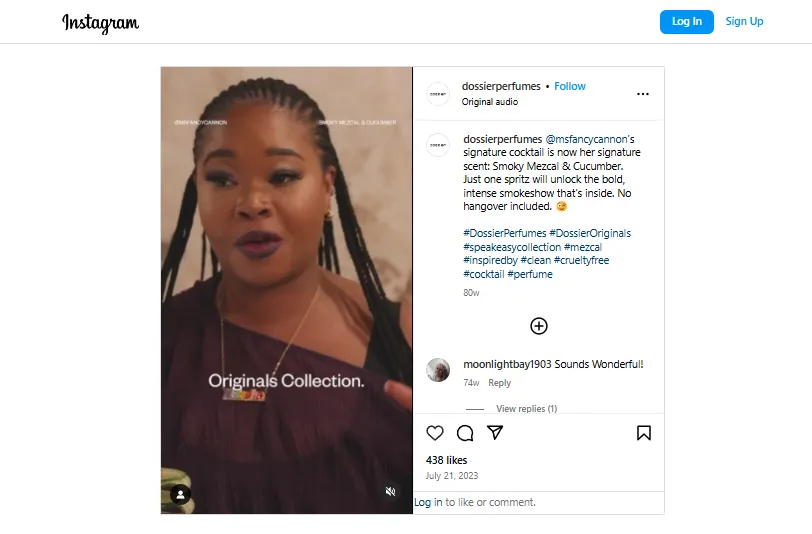
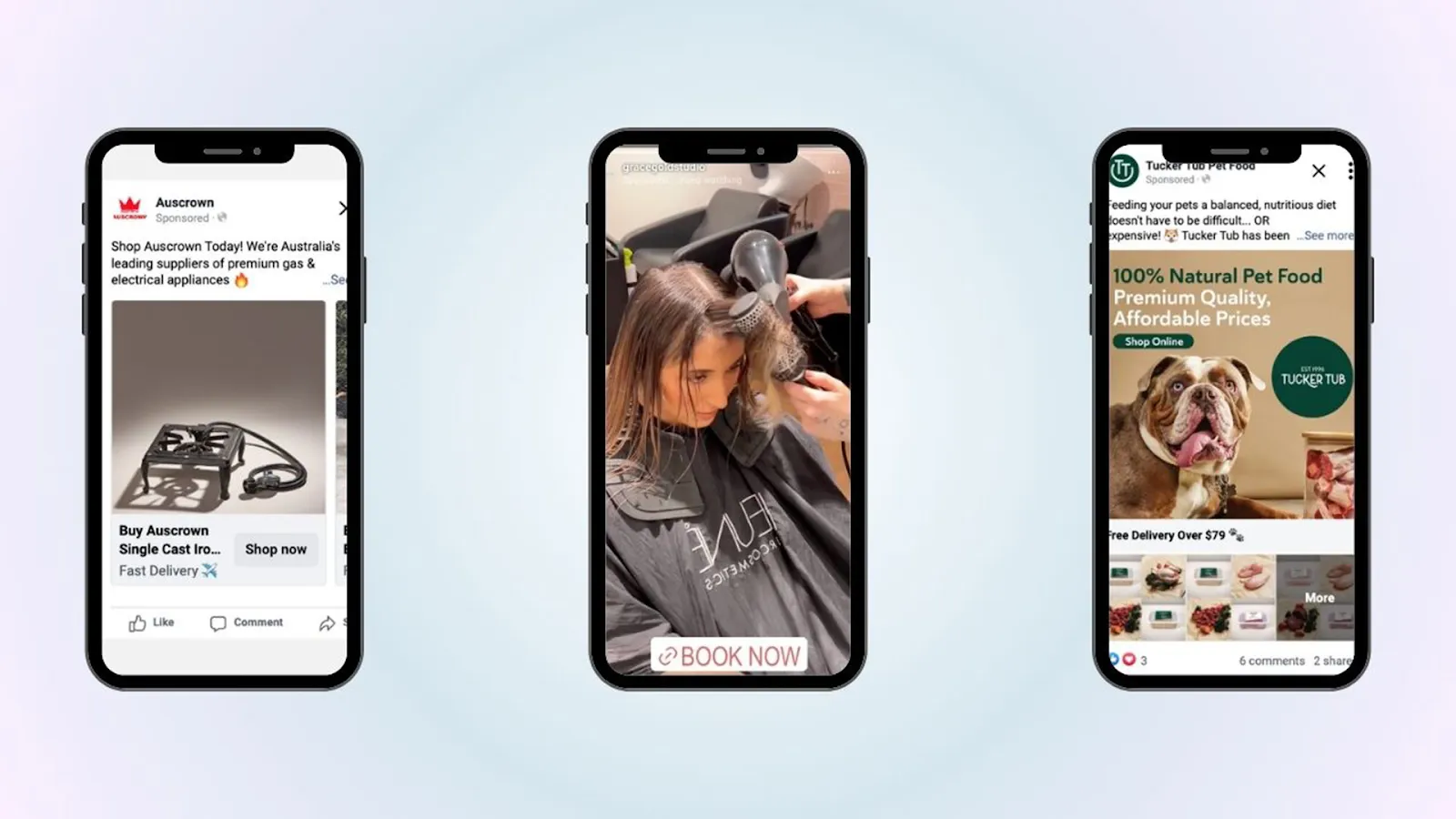
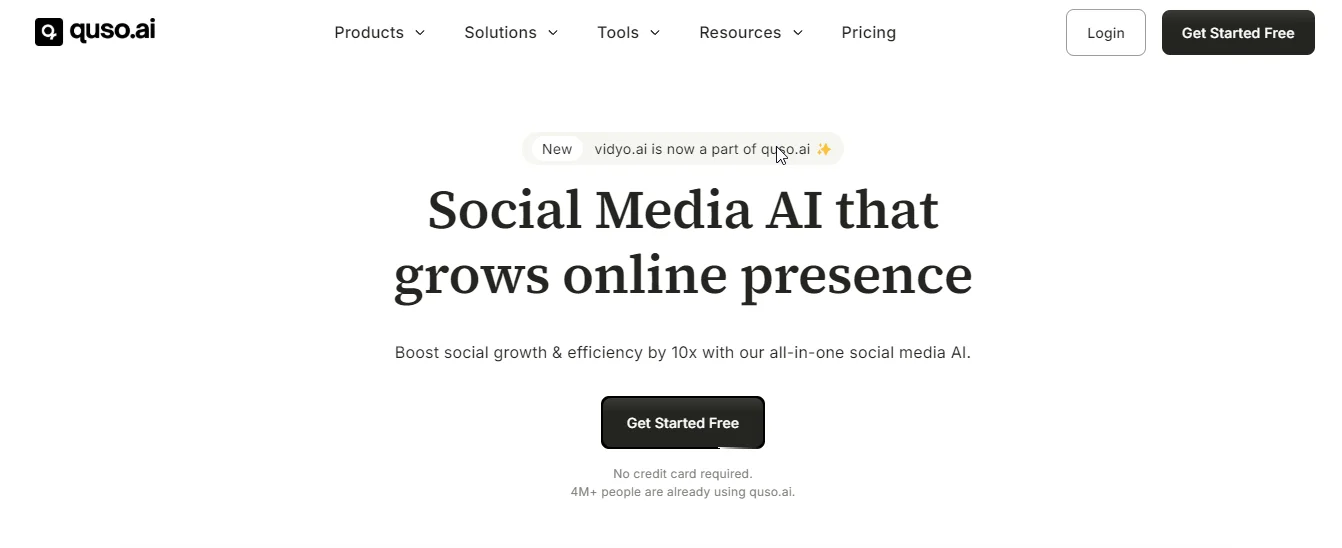
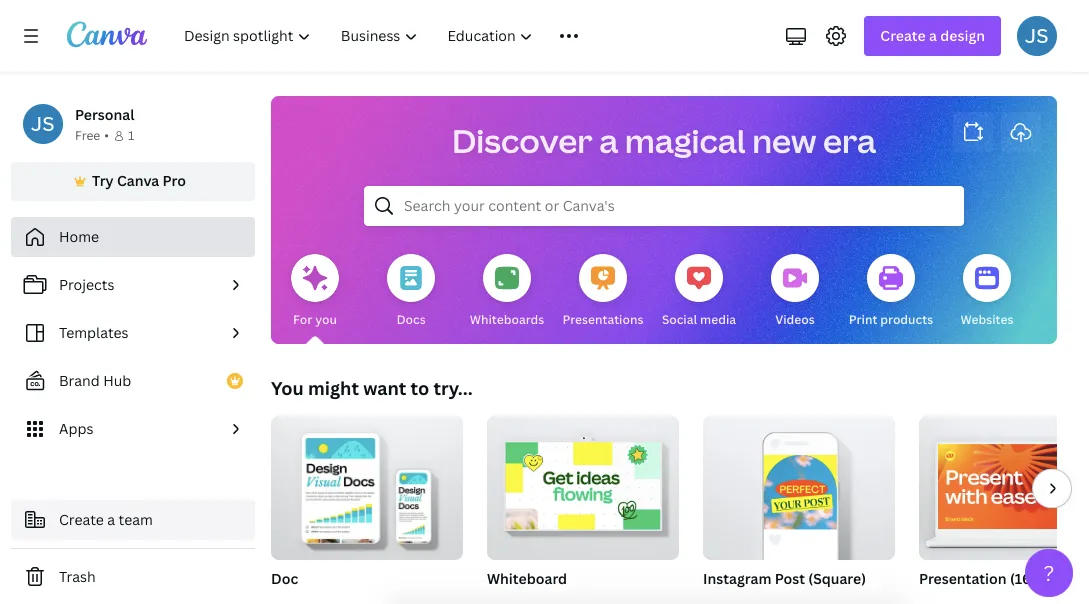
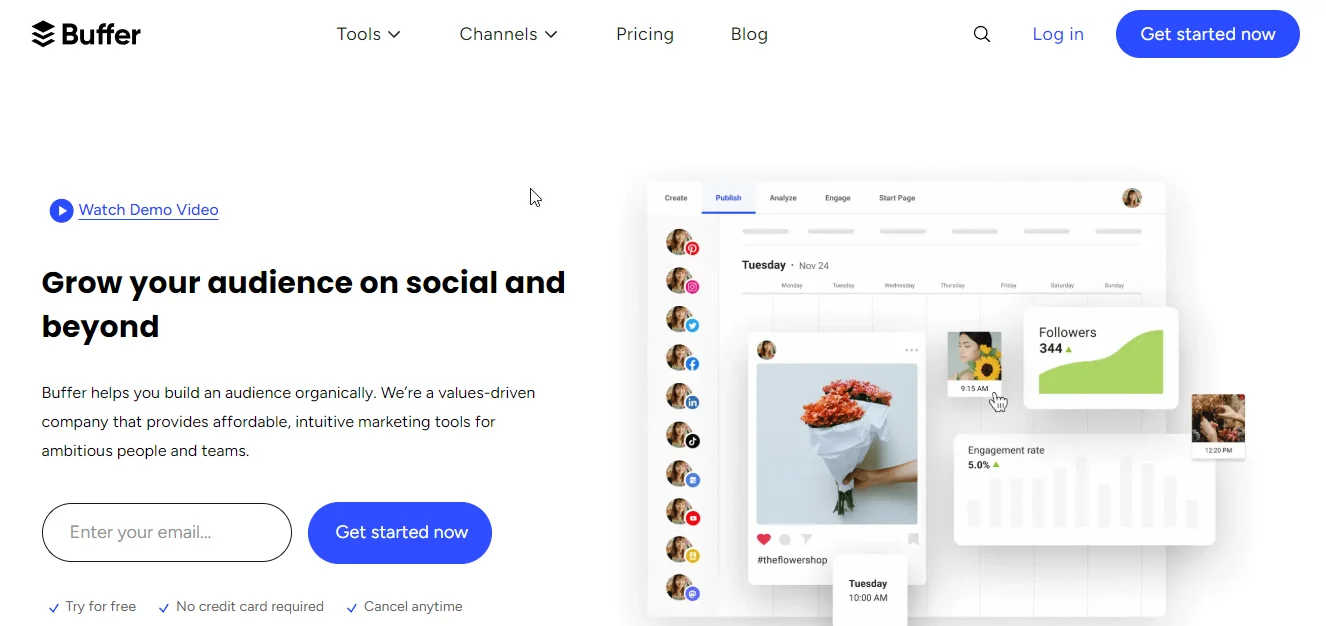
.webp)


